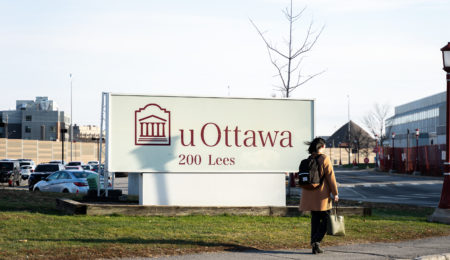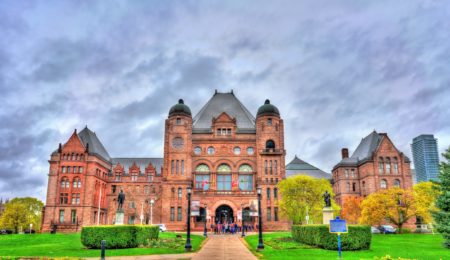“This is a move towards privatization which is going to really harm disabled people.”
On Jan. 11, Doug Ford announced a three-step plan that will increase the capacity of for-profit clinics to perform operations for cataracts, knee and hip replacements, and more — all in hopes of reducing the existing strain on Ontario’s healthcare system.
Under the first step of the new plan, clinics in Ottawa, Kitchener-Waterloo, and Windsor will perform 14,000 additional cataract surgeries each year, to reduce the current waitlist by 25 per cent.
The second step will see private clinics undertaking more MRI and CT scans, as well as “non-urgent,” “low-risk,” and “minimally invasive” procedures including colonoscopies and endoscopies.
By 2024, the third and final step will expand hip and knee replacement surgeries at for-profit clinics.
Since it was announced, the plan has received criticism from health care professionals, politicians, and disability activists.
Leader of the New Democratic Party Jagmeet Singh warned that outsourcing these procedures could divert already scarce resources from publicly-funded hospitals, such as nurses and anesthesiologists.
In addition, Disability Awareness Consultant Andrew Gurza tweeted that the Ontario government’s new plan could create additional barriers for Ontarians living with disabilities.
“This is a move towards privatization which is going to really harm disabled people. Most of us that are living on social assistance in Ontario are living on less than 700 or 800 [dollars] a month,” said Gurza, in an interview with the Fulcrum.
Moreover, Gurza mentioned concerns with respect to the accessibility of these private facilities.
“Most public clinics are not accessible. So, I fail to see how private clinics will be accessible unless they consult disabled community members. There are things like lifts, and there are things like attendant care on site. I think that we shouldn’t be outsourcing to private clinics. We should be trying to fix the public sector.”
In a statement to the Fulcrum, Carly Fox, Communications and Partnerships Director of the National Educational Association of Disabled Students (NEADS) and International Chair of the Council for Canadians with Disabilities (CCD), said the Ford government’s plan will “undeniably exacerbate the healthcare barriers both disabled and non-disabled students currently face.”
“With many disabling conditions and illnesses requiring frequent medical visits and treatments, disabled students are facing the same issues as the general public — think GP/nurse shortages and ER wait times — at disproportionate and lethal levels, with multiple marginalized groups harmed even more.”
While Ford’s plan is a direct response to the lengthening of hospital waitlists due to the COVID-19 pandemic, more attention should be brought to the long-term health consequences of COVID-19 and how this correlates to the procedures that would be outsourced to private clinics, according to Fox.
“It’s important to remember that the COVID-19 pandemic continues to be a mass-disabling event as more people self-identify as a result of long covid, covid complications, and new conditions or illnesses caused by viral infection. As a result, more people are seeking more intensive medical care and medical diagnoses — which often require MRI and CT scans and other diagnostic procedures that are explicitly targeted by Ford’s privatization plan.”
During the Jan. 30 Question Period at the House of Commons, Jagmeet Singh called on Prime Minister Justin Trudeau to enforce the Canada Health Act (CHA) against Ontario’s plan to increase the use of for-profit clinics.





